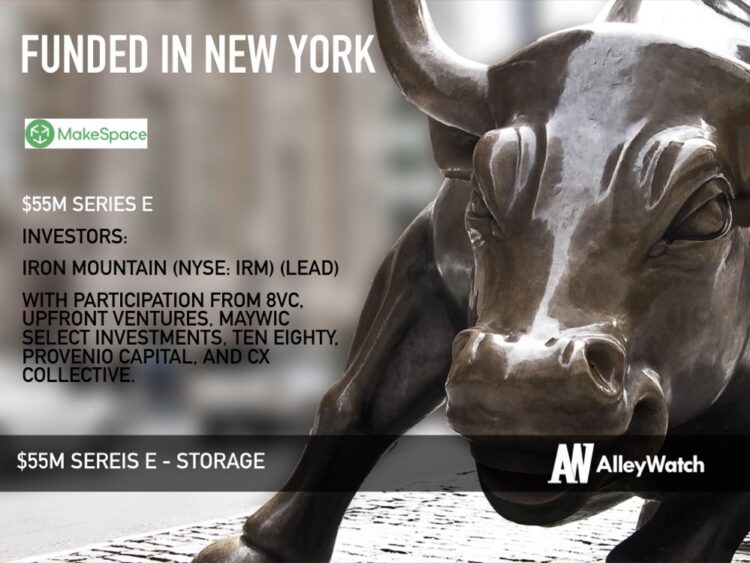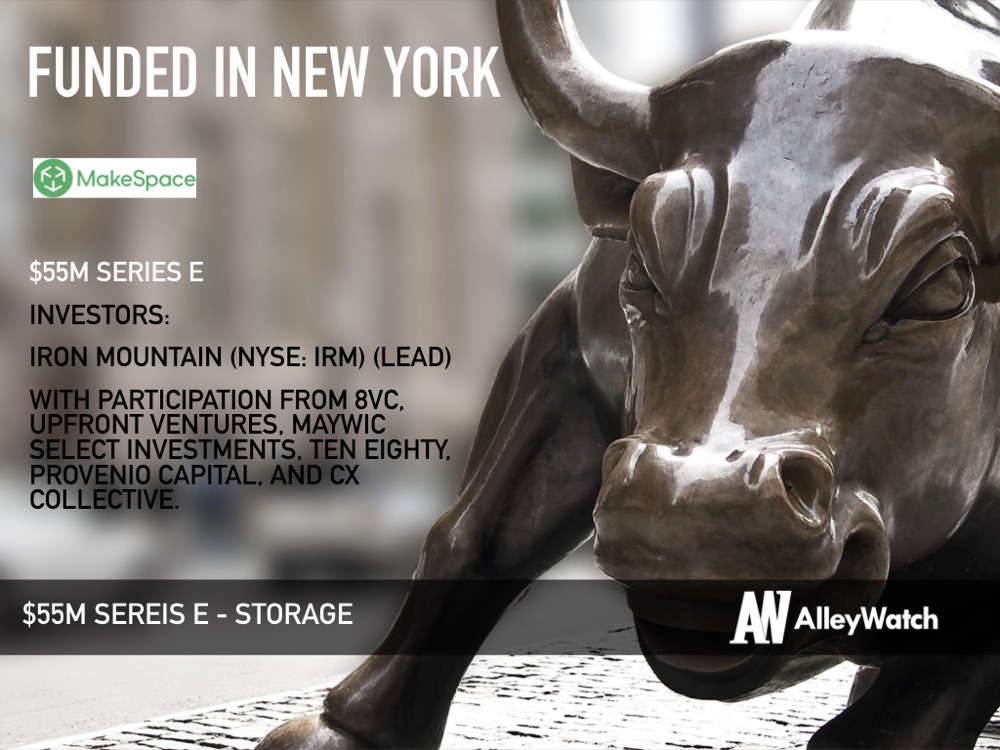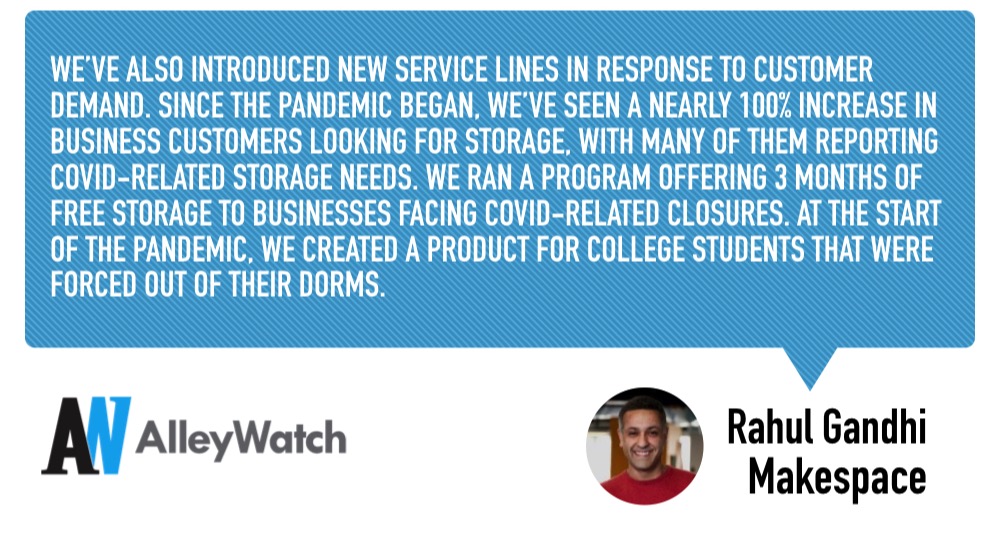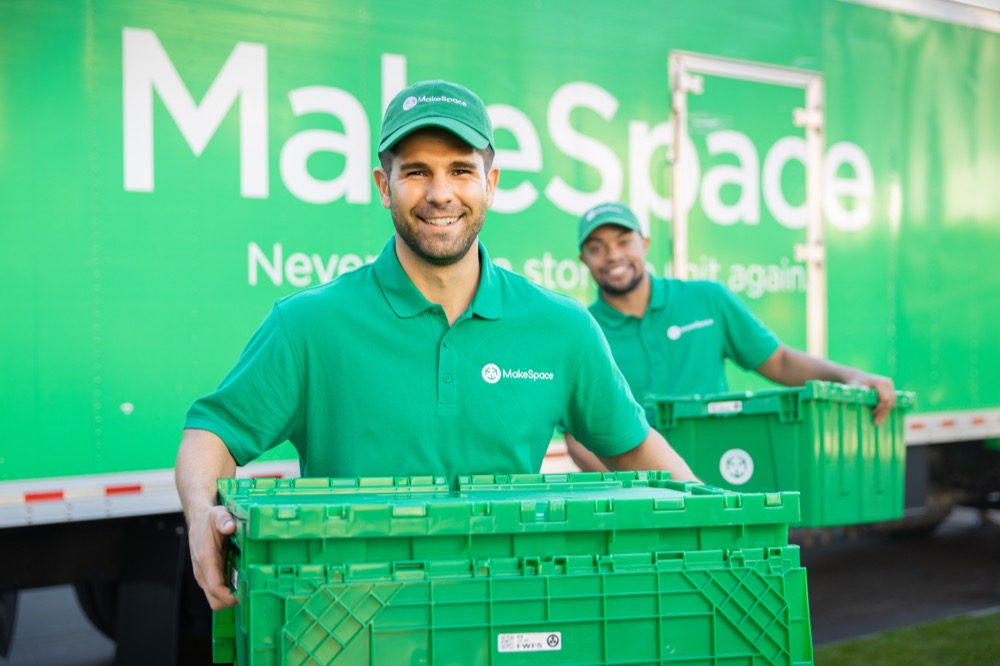Americans have a tendency to hold onto things, which may be why Marie Kondo’s “The Life-Changing Magic of Tidying Up” has been such a success. But if you can’t get rid of everything, the next best thing is storage. According to a 2015 report, there are more self-storage spots in the US than McDonald’s restaurants. MakeSpace helps people navigate the complexity of the self-storage process through its full-service, on-demand storage solution. MakeSpace’s solution, launched in 2013, covers pick-up, storage, and delivery; all that customers need to do is download the app, which also has provides a digital photo inventory function so customers can remember what precious items are stored in each individual container. MakeSpace only charges its customers for the space they use and a nominal monthly fee starting at $69 to store the items. MakeSpace has been deemed an essential business and due to COVID-related storage needs, the demand for the service has skyrocketed. Now available in 31 markets across North America, with over 30,0000 customers, MakeSpace has raised a total of $142.6M across seven rounds.
AlleyWatch caught up with CEO and Cofounder Rahul Gandhi to discuss how MakeSpace’s business if flourishing, the company’s partnership and expansion plans, and latest round of funding.
Who were your investors and how much did you raise?
MakeSpace raised $55M in Series E funding from Iron Mountain, with participation from 8VC, Upfront Ventures, Maywic Select Investments, Ten Eighty, Provenio Capital, and CX Collective.
Tell us about the product or service that MakeSpace offers.
MakeSpace is storage without the struggle. We’re a full-service, on-demand storage company. We pick up your stuff, securely store it, and deliver it back when you need it, all through an easy-to-use app and photo inventory. We offer flexible storage solutions for the home and business.
 What inspired the start of MakeSpace?
What inspired the start of MakeSpace?
In 2012, I was living in Brooklyn, NY when Hurricane Sandy hit. The amount of destruction and flooding in the city was shocking. I teamed up with two other co-founders who had gone through their own experiences with self-storage so that we could change the complex, expensive, and labor-intensive experience we all dealt with during that time of need. We redesigned the storage experience from the ground up, addressing every pain point along the way, and MakeSpace was born.
How is MakeSpace different?
We set out to make storage more convenient and customer friendly. MakeSpace is an affordable, tech-enabled storage company that’s disrupting the antiquated self-storage industry. Customers only pay for the space they use, and can schedule item pickups, drop-offs, and other services through the app which features a digital photo inventory. MakeSpace services are priced similarly to that of local self-storage options, but also includes extra services and supplies that regularly cost self-storage customers hundreds of dollars more, such as packing supplies, professional movers and vehicle rentals.
What market does MakeSpace target and how big is it?
MakeSpace is now available in 31 markets across North America, with our largest market being the Greater New York City Area. The self-storage market is estimated to be around $38B dollars, so there’s plenty of room to grow.
What’s your business model?
MakeSpace charges customers a monthly fee to store their items.
How has COVID-19 impacted your business?
Since MakeSpace was designated an essential business during COVID-19, we’re thrilled that we’ve been able to keep working and help our community. We’ve implemented a number of new policies to keep our team members and customers safe.
Safety and cleanliness has always been a top priority, but we’ve intensified measures to conform with the current guidelines. We are offering no-contact service with masks, gloves, and social distancing. SpaceMakers (the name for our professional movers and drivers in the field) call customers before they arrive, ask them to leave smaller items for pick up outside or in the hallway, and maintain at least 6 feet of distance while SpaceMakers move larger items. Our teams are supplied with sanitary wipes and hand sanitizer to apply before and after each appointment, and they wear gloves and masks. When SpaceMakers are in our warehouses, they actively sanitize commonly used surfaces to help minimize the spread of any germs.
We’ve also introduced new service lines in response to customer demand. Since the pandemic began, we’ve seen a nearly 100% increase in business customers looking for storage, with many of them reporting COVID-related storage needs. We ran a program offering 3 months of free storage to businesses facing COVID-related closures. At the start of the pandemic, we created a product for college students that were forced out of their dorms.
What was the funding process like?
There’s a lot of uncertainty in this environment. Traditional capital sources slowed down virtually overnight. We were fortunate because we received an essential services license so our business could continue operating while we were seeking funds. We also saw demand for our services increase substantially as people sought to make room in their homes for a more work-friendly environment, and many businesses decided not to hold on to physical office space.
We have a strong support system with our existing investor base. They continue to have incredible conviction in the position we’re carving out within the broader storage industry and our performance in this environment positioned us to successfully raise additional capital.
What are the biggest challenges that you faced while raising capital?
It goes back to the uncertainty right now. Not many investors predicted that some of their portfolio companies, such as restaurants, could face a scenario where they would lose everything overnight. As a result, our biggest challenge was trying to predict the different variables (most of which are out of our control) that could impact the business along the way.
What factors about your business led your investors to write the check?
We’ve taken a unique approach to self-storage that addresses the customer’s needs, using technology to enhance the service and grow throughout the continent.
It’s more than just growth too. The way we pivot efforts to help businesses, students, and other impacted customers speaks to the company’s mission and the conditions where the inspiration was derived from.
It’s more than just growth too. The way we pivot efforts to help businesses, students, and other impacted customers speaks to the company’s mission and the conditions where the inspiration was derived from.
What are the milestones you plan to achieve in the next six months?
We’ve recently scaled into 7 new markets in 2020, bringing our total number of cities serviced from 24 to 31. This was an important milestone because we realized that we could scale faster than we initially thought. For the next 6 months, we’re focused on developing our brand and awareness within these new markets, as well as introducing product extensions like junking and donations, that are working quite well in our pilot markets. Longer term, we will look to accelerate our expansion internationally.
What advice can you offer companies in New York that do not have a fresh injection of capital in the bank?
There is a renewed focus in the market right now on sustained growth and profitability. We have always focused on building our business with an eye towards profitability so nothing has changed in our approach.
The best advice I can give is to maximize runway and control costs as much as possible. The capital raising environment will be difficult for the next 12-18 months and potentially longer depending on how the pandemic continues, but companies that can show steady growth with healthy fundamentals will capitalize once the future becomes clearer in a post-COVID environment.
Where do you see the company going now over the near term?
We are continuing to invest in resources to meet our customer demand in all of our markets. We are investing in technology and development as we work towards broadening our consumer offerings based on customer needs today. Our competitive advantage against the traditional storage operators is that we have a deep relationship that we develop with our customers over time so we can better meet their needs.
What’s your favorite restaurant in the city?
Wogies Bar & Grill. I grew up in Southern New Jersey, close to Philadelphia. I’m a sucker for a great cheesesteak!
You are seconds away from signing up for the hottest list in New York Tech! Join the millions and keep up with the stories shaping entrepreneurship. Sign up today






